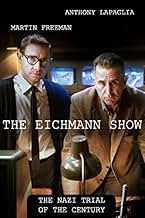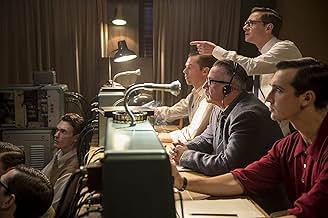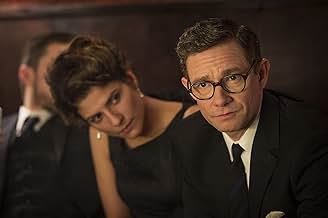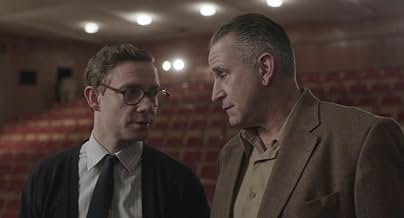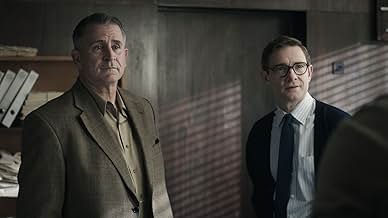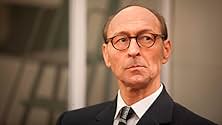What to make of THE EICHMANN SHOW? It is necessary to detach fiction from fact. Paul Andrew Williams's production includes large slices of archive footage of the trial, showing the impassive features of Adolf Eichmann as he listened to the testimonies of several witnesses (victims?) of the atrocities he condoned. There are also newsreel records of the concentration camps and their victims, who if they were not already piled up into heaps of dead naked bodies, were left emaciated, mere shadows of what was once live humanity. These sequences are difficult to stomach, even at seventy years' remove; we still wonder how people could behave in such a bestial manner.
The dramatized parts are less effective, to be honest. The action is structured around a conflict between television producer Milton Fruchtman (Martin Freeman) and his director Leo Hurwitz (Anthony LaPaglia). Fruchtman has rescued Hurwitz from a ten-year exile on the Un-American Activities Committee blacklist, but finds him difficult to work with, as Hurwitz seems obsessed with focusing his cameras on Eichmann's face, to the detriment of other events during the lengthy trial. At one point Hurwitz misses a dramatic moment when one witness faints as he tries to recall his harrowing experiences in the death camps. Yet sometimes the conflict between producer and director distracts our attention away from the events at hand, almost as if director Williams were trying in some way to soften the dramatic impact of his piece. Matters are not helped by the regular use of reaction shots on Freeman's and LaPaglia's faces as they respond to one another.
On the other hand Williams does question Fruchtman's morality, as he seems more obsessed with maintaining global ratings rather than broadcasting the material. We are into areas explored in Sidney Lumet's NETWORK (1976) here: are television companies really undertaking public service responsibilities, or are they simply trying to render all events as entertainment to attract high viewing figures? Hurwitz understands the significance of what he directs, but Fruchtman appears not to.
THE EICHMANN SHOW is certainly a powerful piece that needs to be watched, but perhaps the reconstructed material could have been more slickly handled.

